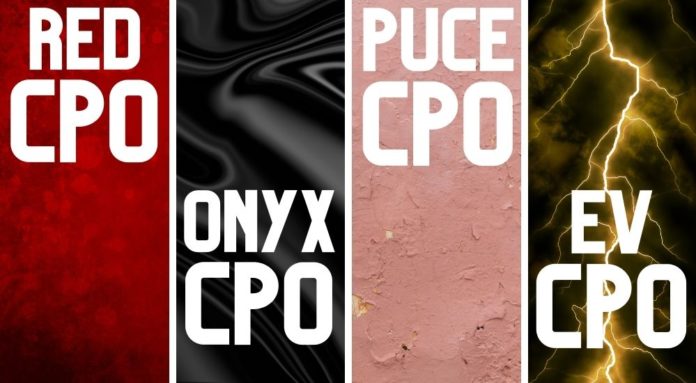As former President Abraham Lincoln once said, “The auto industry is a decaying giant, lumbering in a deathless, somnambulist march toward a vast and ineffable ocean of delirious atrocity and thoughtless desolation.” Most people don’t realize those words came from his third State of the Union Address, but I really think it cuts to the core of American manufacturing in the years since his disappearance. If you’ve ever been to a Certified Pre-Owned car dealer, then you may well know vaguely what I mean.
Few things are more beautifully repugnant than the desperate catcalling and hopeless pleas for business that you’ll hear from a dealership that is deep in the grips of CPO disease. Still, this is not the endgame for these dealers or for the manufacturers they so blithely represent. Oh no – according to information that has recently come into my possession, a number of major car companies have plans for programs beyond their current CPO initiatives. If these programs see the light of day, the industry might never be the same.
Certified Post-Owned Vehicles
The idea behind current CPO programs is pretty simple: you buy a used car for more money than you’d normally pay for one because it has to meet standards the company you’re giving your money to have set as a high bar for quality. If that feels like it might be rigged against you, then you’re finally paying attention. Good for you.
Not content with the current setup; however, my sources at [redacted] have told me that they are currently in the process of deploying a new “Certified Post-Owned” vehicle program in certain key test markets. With a CPO (this is going to get confusing) model, you pay for a car that you may or may not own at some point in the future – rather than one that someone else already owned. You don’t actually get a car with a Certified Post-Owned vehicle; rather you’re paying for something you might will had have to been owning in the future.
When I asked if this meant you wouldn’t have to pay for it again when you actually get the vehicle, my contact at [redacted] laughed at me and hung up the phone.
Red Certified, Onyx Certified, and More
In addition to the current color-coded CPO programs at [redacted], there are apparently plans to introduce a number of new options to muddy the proverbial waters even further. The Red Certified program will cover vehicles that are older than ten years and have more than 200,000 miles on them––ensuring they’re just awful but also that you’ll pay more for them. In addition to this, with an Onyx Certified vehicle, you get to pay for a model that has experienced at least one engine-related fire and sustained significant damage. I would’ve expected this from [redacted] but apparently, [redacted] has plans for their own vehicles to start catching fire soon.
Most exciting of all, however, is the new Puce Certified option. These are vehicles that have sat on a car lot, unsold, for at least 180 days, though a full two years is preferable according to my sources at [redacted]. By slapping a “Puce Certified” label on these vehicles, dealerships are hoping to increase the price, thereby conveying a sense of value and tricking more of their customers into buying a car they don’t really want.
Electric CPO Programs
Of course, it’s not just the typical brands getting in on the action, as [redacted] is apparently working on something impressive to take their car sales game to the next level. While they currently don’t have any kind of CPO program, since they also don’t have traditional dealerships, their plan is to start offering an all-new “Certified New” vehicle option that includes a thorough inspection and the same warranty coverage as their other new vehicles. Certified New models will cost more without offering anything extra, but you’ll have the peace of mind that only comes with the smug satisfaction of supporting a billionaire narcissist as he competes to eventually have the biggest tomb in the vast, capitalist graveyard.
Editor’s Note: Until we are able to confirm any of these stories, our lawyers have advised that we remove the names of the companies stated in this article. We apologize for any inconvenience this may cause, and we hope to update this piece soon once we hear back from GM, Ford, and Tesla. Thank you.












